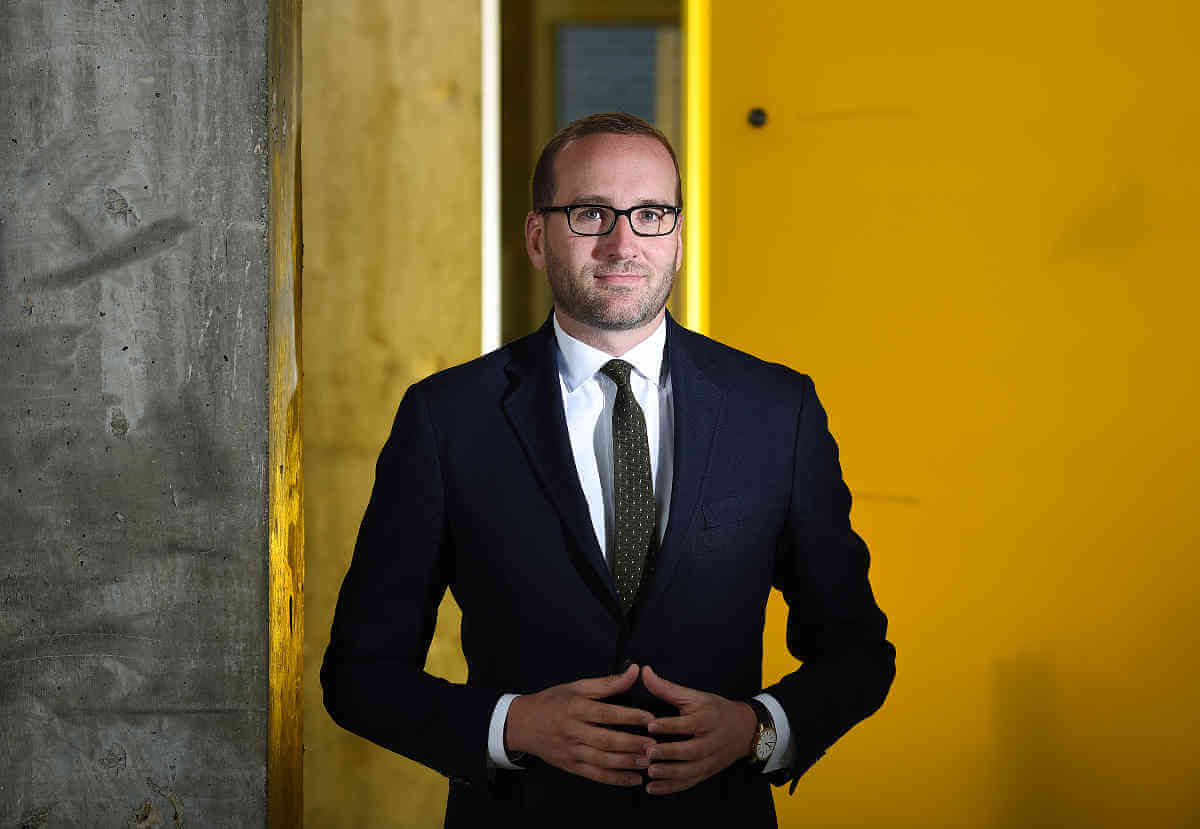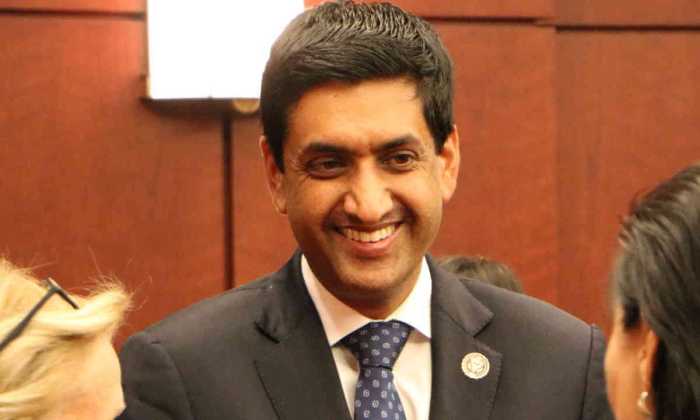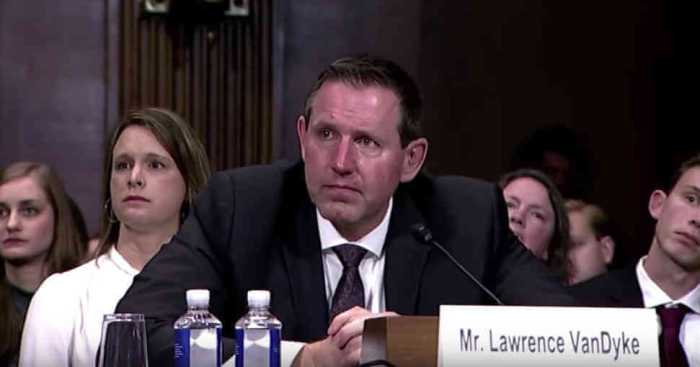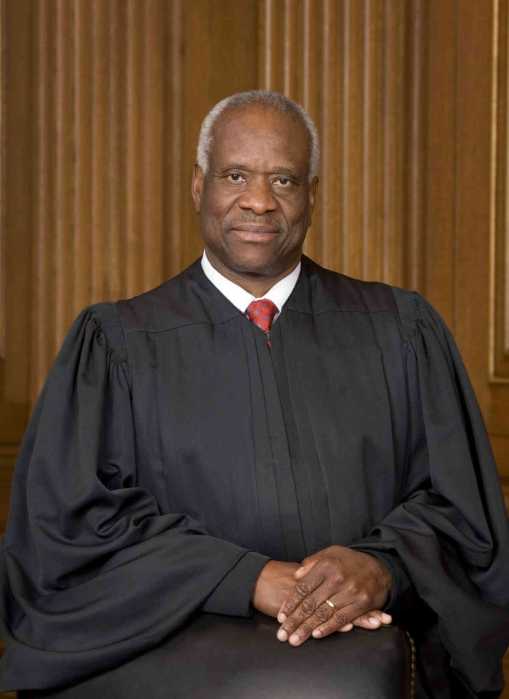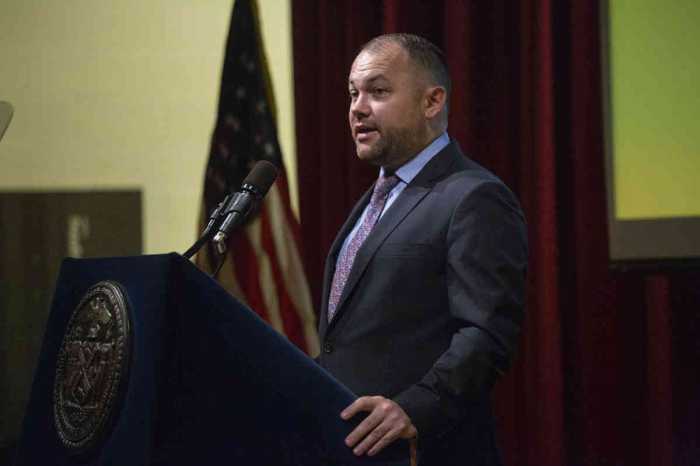Chad Griffin, who has helmed the Human Rights Campaign, the LGBTQ community’s leading Washington lobby group, since mid-2012, announced he plans to leave the organization in 2019. As the group’s board undertakes a search effort for his successor, Griffin said he will stay in place.
In a November 15 release from HRC, Griffin stated, “I am so grateful to have had the opportunity to be a part of this incredible organization at such an important moment in the history of our movement — and our nation. The true strength of the Human Rights Campaign is in its fearless army of staff and volunteers, who are committed to ensuring full equality reaches every LGBTQ person across America, and around the world. For decades, this organization has shown the world that love conquers hate. But this year, in this election, with the future of our democracy on the ballot and the equality of future generations on the line, we proved that votes conquer hate, too.”
The group’s release noted that in the wake of the 2016 election — which cemented anti-LGBTQ leadership in the White House and both houses of Congress — HRC invested $26 million in the largest grassroots expansion in its 38-year history, and in the recent midterm elections deployed 150 staff members to mobilize voters in more than 70 House and Senate races in 23 states. The group emphasized that its 480 endorsements this year reflected a more diverse array of candidates, 45 percent of them women — that figure rising to 55 percent among non-incumbents — and one third of them people of color.
HRC, according to its release, focused particular attention on Arizona, Michigan, Nevada, Ohio, Pennsylvania, and Wisconsin, where all six endorsed Senate candidates won and seven non-incumbent House members were elected. In all of those states except Ohio, Democrats made substantial gains over their 2016 performance.
HRC, its release stated, doubled its staff, budget, and membership — that last measure rising from 1.5 million to 3 million — during Griffin’s tenure.
In its most recent federal 990 filing, HRC identified Griffin’s salary for the year ending March 31, 2018 as just over $500,000.
Griffin, who is 45, arrived at HRC, the embodiment of the gay establishment, from a group that just three years earlier announced that was taking on the community’s leading legal and political organizations over the strategy for winning marriage equality nationwide. In 2009, months after California voters adopted Proposition 8, which overturned that state’s Supreme Court pro-marriage ruling, Griffin, then a public relations professional, in partnership with director Rob Reiner and others, launched the American Foundation for Equal Rights (AFER) to challenge the California voter initiative in federal court. AFER’s founders announced it would serve as the vehicle that would eventually bring marriage equality to the entire nation.
Other prominent advocacy groups were more cautious at that moment about the prospects for success in the federal courts, especially the US Supreme Court. Up to that point, the advances had all come in state courts and legislatures — in Massachusetts, Connecticut, Iowa, New Hampshire, Vermont, and, temporarily, Maine as well as California.
AFER in announcing its goals implicitly rebuked the caution of others in the marriage equality fight — and the group, in turn, faced blowback from more established players.
Still, AFER’s launch was splashy, signing on two of the nation’s most prominent litigators — David Boies and former US Solicitor General Ted Olson, who had been antagonists in the infamous Bush v. Gore Supreme Court case that settled the 2000 presidential election.
The litigation team proved able, winning a federal district court victory in a lawsuit that the state of California declined to defend against, leaving Proposition 8 to be defended only by the voter initiative’s proponents. That district court victory was upheld by the Ninth Circuit Court.
The case did not reach the Supreme Court until 2013, by which time Griffin had joined HRC. Though the Supreme Court’s ruling sealed the fate of Proposition 8 — opening up marriage in a state with a population larger than the combined populations of all the other states that then had equal marriage rights — the decision was a narrow one: focused on the lack of standing that the initiative’s proponents had in defending it. The underlying merits of the case were not addressed by the high court.
The more consequential rulings came in cases brought by established legal groups and players — in Edie Windsor’s challenge to the federal Defense of Marriage Act, also in 2013, and in the Obergefell case in 2015 that finally settled the question nationwide.
Still, the pro-equality ruling AFER won from District Court Judge Vaughn Walker in 2010 resonated in the blizzard of favorable rulings that followed Windsor’s victory three years later.
Given Griffin’s PR background and his prominent position at HRC, it is perhaps not surprising that AFER’s work was celebrated in two high profile histories that emerged quickly on the heels of the 2013 Supreme Court’s disposal of the Prop 8 case: Jo Becker’s book “Forcing the Spring: Inside the Fight For Marriage Equality” and an HBO documentary “The Case Against 8.”
Even as the marriage battle continued, HRC was at the center of a high profile debate in the community over the best route for finally winning nondiscrimination protections for the community on the federal level. Years earlier, the group had been battered over its decision to eliminate protections for the transgender community from the long-stalled Employment Non-Discrimination Act. With HRC now fully committed to including gender identity in any federal legislative push, the questions under debate instead focused on two other issues: the fact that ENDA only addressed employment nondiscrimination and its inclusion of religious exemption language that concerned legal groups including the American Civil Liberties Union, the GLBTQ Legal Advocates & Defenders, Lambda Legal, the National Center for Lesbian Rights, and the Transgender Law Center, as well as the National LGBTQ Task Force.
The religious exemption issue came to a head with two developments in 2014 — President Barack Obama’s executive order barring anti-LGBTQ discrimination by contractors doing business with the federal government, where advocates successfully pressed the White House not to offer any opt-outs, and the Supreme Court’s controversial Hobby Lobby decision, which allowed a closely held private business to successfully assert a religious exemption from the contraception access requirements for employer health plans under the Affordable Care Act. Debate on both issues mobilized fierce opposition to the religious exemption that HRC had co-signed as part of ENDA.
In July of that year, in an abrupt about-face, HRC announced it would no longer accept religious exemptions as part of any nondiscrimination measure and that it was abandoning its narrow focus on employment and would instead push a comprehensive measure, essentially amending the 1964 Civil Rights Act, to protect the LGBTQ community. The following year, the Equality Act was introduced in Congress.
Continued Republican control of Congress has stymied any progress on the Equality Act, but support for it has become routine for Democrats seeking federal office, and that party will face determined pressure to pass the bill in the House in next year’s session, despite the unlikelihood that a GOP Senate would ever let it advance.
In a November 15 release he termed “a personal message,” Griffin noted, “Despite the political landscape of the last two years, we’ve gained the backing of 246 bipartisan members of Congress and over 120 companies across the country. And now, thanks to you, we have an incoming House leadership that has vowed to make passing the Equality Act their top priority.”

